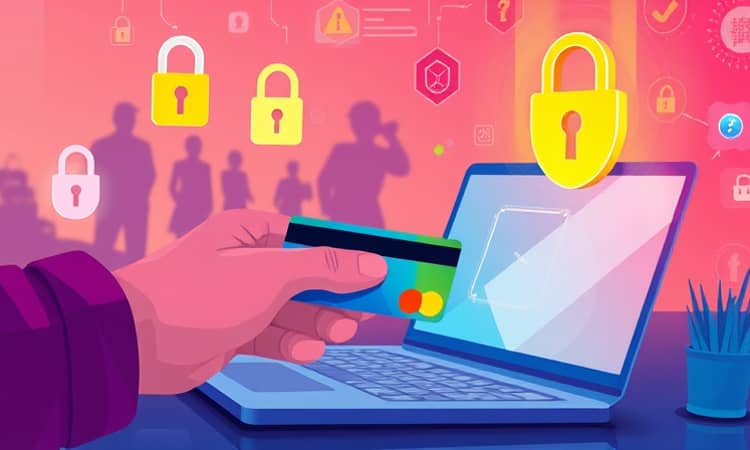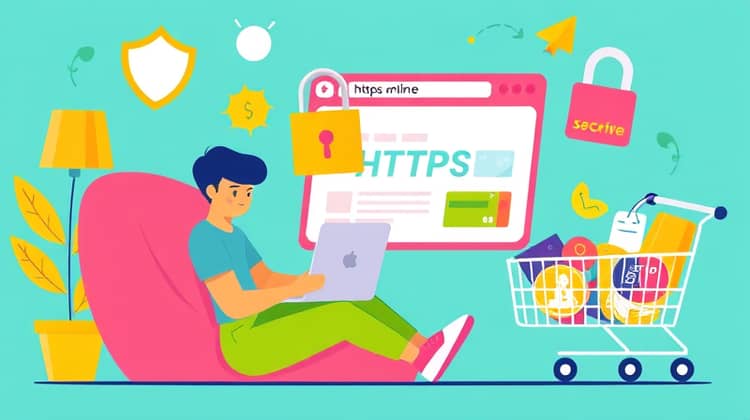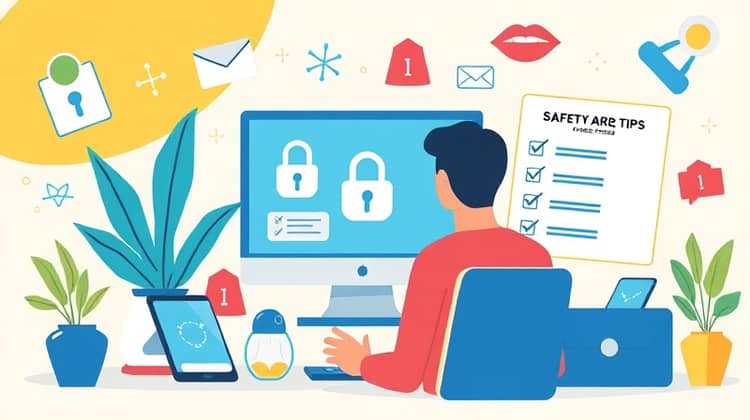Scam-Proof Your Credit Cards: 5 Secrets to Avoiding Fraud

The rise of online transactions and the convenience of credit cards have made them an essential tool for many people. However, this ease of use also comes with a darker side: credit card fraud. As technology evolves, so do the tactics employed by scammers, making it increasingly important for consumers to protect themselves against potential threats. In this article, we've compiled five key secrets to help you secure your credit cards and avoid falling victim to fraud.
Understanding the various methods of fraud and how to defend against them is crucial for preserving your financial security. By implementing the strategies outlined here, you can significantly decrease your risk of experiencing fraud, giving you peace of mind when making transactions. Whether you're shopping online, at stores, or using your card for bills, these tips are designed to keep you and your financial information safe.
Let's dive into these important strategies that will empower you as a consumer to take control of your financial well-being and be proactive in the fight against credit card fraud.
1. Keep Your Information Secure

One of the most fundamental ways to protect your credit cards is to keep your personal information secure. This means being vigilant about where and when you share your data. Scammers often rely on individuals being careless with their details, which can lead to unauthorized access to accounts.
Always be cautious when handling sensitive information. Use strong, unique passwords for your online accounts, enable two-factor authentication wherever possible, and ensure that you're not sharing information in unsecured methods. Securing devices with updated antivirus software also helps reduce vulnerabilities.
- Use strong passwords that combine letters, numbers, and symbols.
- Change your passwords frequently and do not reuse them across accounts.
- Avoid sharing sensitive information over public Wi-Fi.
- Keep your personal and financial details private.
It's equally important to keep an eye on your credit cards and ensure they are stored safely. This means using a secure wallet and being aware of your surroundings when using your cards in public. Remember, being proactive in securing your information can significantly mitigate risks.
After all, it's better to be safe than sorry, especially when it comes to your financial information.
2. Be Wary of Phishing Scams

Phishing scams are one of the most common methods used by fraudsters to steal personal information. These scams often come in the form of emails or messages that appear to be from legitimate sources, tricking individuals into providing sensitive information. It’s crucial to be suspicious of any unsolicited communication.
To protect yourself, never click on links or download attachments from unknown sources. Legitimate businesses will not ask for sensitive information via email, so if you receive a request that seems odd, contact the company directly to verify its authenticity.
Stay informed about various phishing techniques, as they can evolve. Spotting the signs of phishing attempts can save you from becoming a target.
- Always verify the sender's email address before responding.
- Look for grammatical errors or unusual language in messages.
- Avoid clicking on links in unsolicited emails or messages.
- Utilize security settings in your email client to filter suspicious communications.
By taking these precautions seriously, you can protect your personal data from being compromised and avoid possible financial loss. Being vigilant is key.
3. Monitor Your Accounts Regularly

Regular monitoring of your credit card statements is crucial for identifying fraudulent activity early. By reviewing your transactions promptly, you can catch unauthorized charges and report them before they escalate.
Set up alerts with your bank or credit card provider to notify you of transactions. This proactive measure not only enhances your awareness of your spending habits but also alerts you to anything that appears suspicious.
- Set up transaction alerts with your credit card issuer.
- Review your statements monthly for any unauthorized charges.
- Use mobile banking apps to check your balances frequently.
- Consider signing up for credit monitoring services.
Remember, the sooner you detect any suspicious activity on your account, the quicker action can be taken to protect your finances. Consistently monitoring your accounts can help you stay one step ahead of fraudsters.
4. Use Secure Payment Methods

Choosing the right payment method can have a significant impact on your security. For online transactions, opt for methods that offer additional layers of protection, such as virtual credit cards or payment services like PayPal.
These methods can shield your actual credit card number from potential threats, providing an added layer of safety. Always look for
unordered_list
- Use virtual credit cards for online purchases.
- Look for websites with HTTPS in the URL.
- Avoid saving payment information on e-commerce sites.
- Limit sharing your credit card information over the phone.
By using secure payment methods, you reduce the risk of your credit card information being intercepted. Prioritizing security in transactions will help steer clear of fraud.
5. Stay Informed About Scams

Staying updated on the latest scams is vital as scammers continuously adapt their strategies. Being aware of what’s trending in the world of fraud can significantly enhance your ability to protect yourself.
Follow credible sources, such as consumer protection websites, news outlets, or financial institutions, that regularly report on new scams. Knowledge is your best defense as it enables you to recognize potential threats.
Educate yourself on common scams targeting consumers regularly, including lottery scams, fake charities, or deceptive investment opportunities.
- Subscribe to alerts from your bank regarding fraud.
- Follow consumer protection agencies for updates on recent scams.
- Share information about scams with friends and family.
- Participate in community workshops on fraud prevention.
Staying informed can make all the difference in avoiding falling for new scams, enabling you to take proactive measures.
Conclusion

In conclusion, protecting your credit cards against fraud requires vigilance and proactive measures. By implementing the five strategies discussed, you can significantly reduce your exposure to potential threats and safeguard your financial information.
Remember, security is an ongoing process. Regularly updating your knowledge and adapting to the ever-changing landscape of scams can protect you and your assets from harm. Stay aware, stay informed, and take action when necessary, and you'll be equipped to combat fraud effectively.
As technology continues to evolve and the tactics of scammers become more sophisticated, your commitment to implementing these protective measures will be key. Be proactive in your approach to safeguarding your credit cards, and you'll enjoy the peace of mind that comes with knowing your finances are secure.






